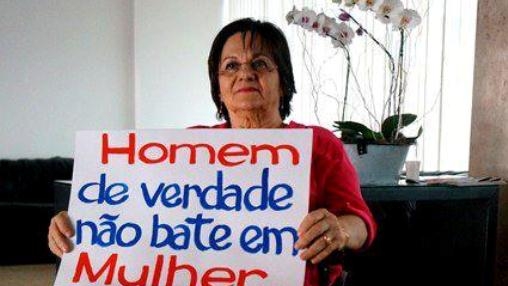Ahead of International Women’s Day, Brazilians are getting a closer look at the ugly reality of domestic violence, which affects one in three women worldwide.
A series of documentaries portraying the plight of victims in painful detail of high-definition, debuted last night in Congress as part of an awareness campaign against gender violence in Brazil.
Five filmmakers took center-stage as their work received awards as well as the recognition of Brazilian lawmakers, who have been instrumental in passing tough laws against gender violence.
All the documentaries tell dramatic stories of women struggling with abusive relationships with their spouses. But the silent protagonist of it all was there only in spirit: Maria da Penha, a biochemist by training who became paraplegic after repeated attacks by her husband. She served as inspiration for key legislation against domestic violence in Brazil.
True stories
Twenty-two films entered the competition. Some of the true stories which made it to the finals include:
- Silvia, an activist for women’s rights, murdered by her son in law, who used to beat her daughter
- Veronica, Carmen, and Sara, who managed to free themselves from abusive husbands
- Lucilia, an indigenous woman, who repeatedly tried to file a report against her ex-partner, but the police never investigated
- A group of women working against gender violence in Sao Paulo
Winners were awarded a prize of BRL 10,000 (US$ 5,038) each.
Their work will be available in English, French and Spanish and streamed for free on the World Bank’s website and social media channels. The movies will also be exhibited by TV Câmara, as well as by Brazilian cable TV channel GNT.

